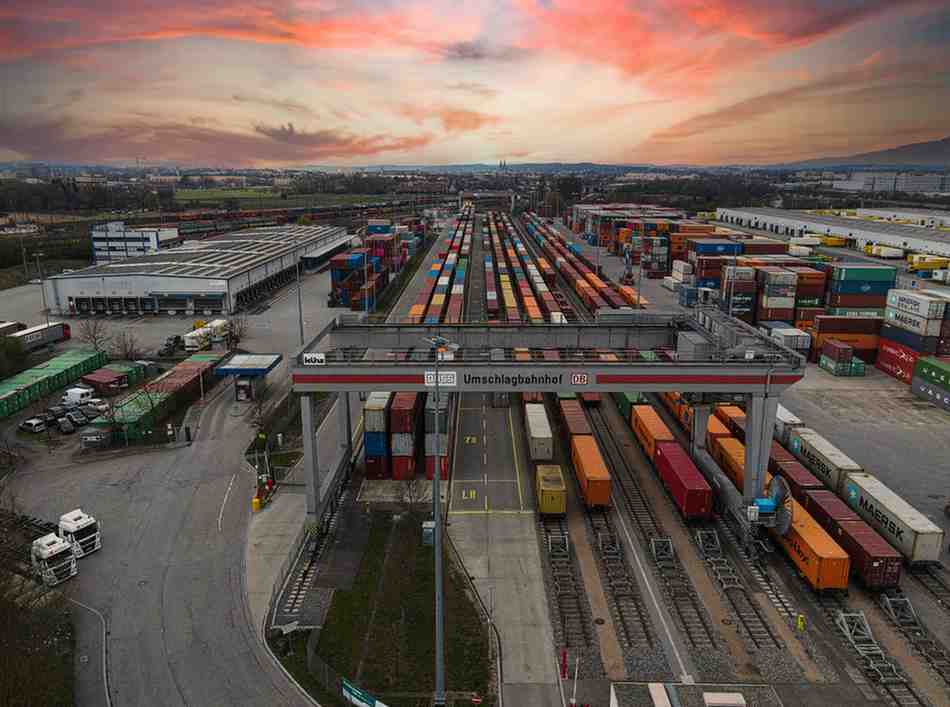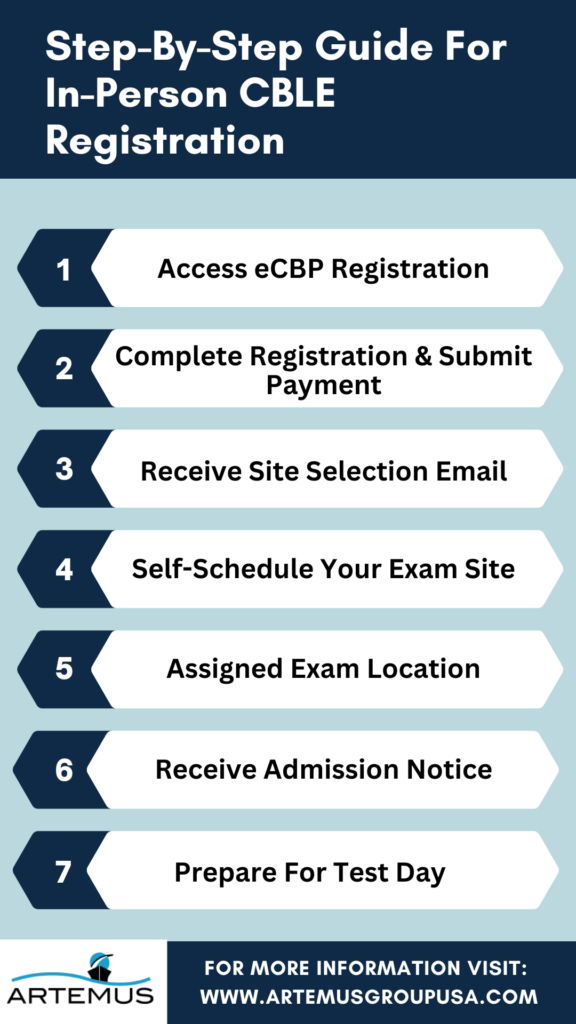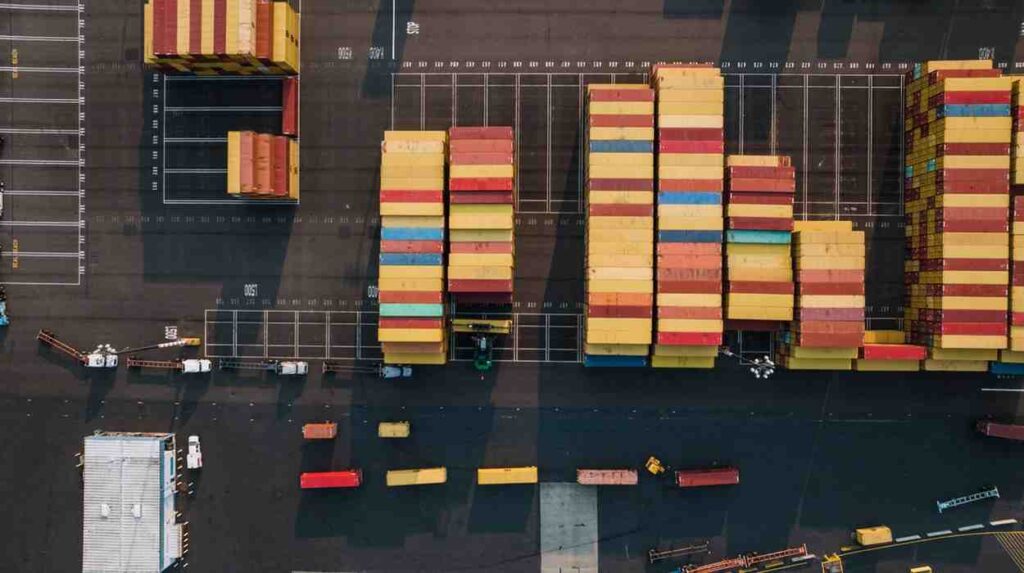
What Is Inbound Logistics & Outbound Logistics? A 2025 Guide
In the dynamic world of supply chain management, understanding the nuances of inbound and outbound logistics is crucial for operational

Navigating the intricacies of international trade and customs regulations can be a daunting task, especially for businesses and individuals looking to import or export goods. One crucial aspect of this complex landscape is the Customs Broker Exam, which individuals must pass to become certified customs brokers.
In this blog post, we’ll explore the process of Customs Broker Exam Registration, shedding light on the essential steps and requirements to help aspiring customs brokers embark on their journey to compliance expertise.
Technology plays a pivotal role in streamlining processes and ensures seamless compliance with ever-evolving regulations. Artemus Transportation Solutions comes into play with an innovative solution offering cutting-edge customs broker software. It is designed to simplify the customs clearance process.
Table Of Contents
To register for the Customs Broker Exam, whether you’re opting for in-person or remote-proctored testing, the process is conducted through an online portal provided by the U.S. Customs and Border Protection (CBP). Here’s a clear guide on where to register:
The Customs Broker License Exam is designed to assess your knowledge of customs and related laws, regulations, procedures, bookkeeping, accounting, and other essential matters relevant to the import and export industry. Examinees will receive an email on exam day with instructions on how to download their answer record, which is important should an examinee decide to appeal the CBLE results.
After the exam, CBP will make every effort to post the exam as soon as possible on the Past Customs Broker License Examinations Answer Keys webpage. Exam result letters will be emailed to all examinees, so make sure to add “brokermanagement@cbp.dhs.gov” to your email contacts to ensure you receive your results without any issues. Your success in becoming a certified customs broker begins with a smooth and timely registration process through the official CBP portal.
Related: How To Find A Customs Broker? 7 Important Factors To Know
When preparing to register for the Customs Broker Exam, you must ensure you have the necessary documents to meet the Identification (ID) and Proof of Citizenship requirements. The U.S. Customs and Border Protection (CBP) has specific guidelines for the documents that are acceptable. Here’s a list of documents required for Customs Broker Exam Registration:
U.S. Passport: A valid U.S. Passport serves as both identification and proof of citizenship.
U.S. Certificate of Naturalization or Citizenship: This document also satisfies both the ID and Proof of Citizenship requirements.
U.S. State Issued Driver’s License or U.S. State Issued Identification Card: A valid driver’s license or identification card issued by a U.S. state is acceptable.
U.S. Military Identification: Active-duty military personnel can use their military ID for identification.
U.S. Federal, U.S. State, or U.S. City Government Employee Identification: If you work for a government agency, your employee ID can serve as identification.
U.S. Territory Identification (Puerto Rico, Guam): If you’re a resident of a U.S. territory, your territory-issued identification is valid.
U.S. Birth Certificate: If you’re using a U.S. Birth Certificate, it’s essential to have an additional form of identification.
U.S. Consular Report of Birth Abroad or Certification of Birth: This document can be used to prove citizenship, but you’ll still need an additional form of identification.
It’s important to note that expired identification documents, including expired passports, are not acceptable. Even if the state where you’re testing allows expired forms of identification, CBP does not make exceptions in this regard, and no refunds are provided in such situations. Ensuring that your identification and citizenship documents are valid and up-to-date is crucial to the successful registration for the Customs Broker Exam.
Related: What Does A Customs Broker Do? 10 Key Responsibilities
The Customs Broker License Examination (CBLE) in the United States, administered by U.S. Customs and Border Protection (CBP), is conducted at various test centers across the country. Exam locations may vary, so it’s important to check the CBP website for the latest information when registering. Here’s a general idea of where you can find CBLE exam locations:
1. Major Cities: CBP aims to provide exam locations in major cities and metropolitan areas throughout the United States. Cities such as New York, Los Angeles, Chicago, Miami, Houston, and Atlanta are often designated as test centers due to their significant trade and customs activities.
2. Port Cities: Exam locations are commonly situated in or near major U.S. ports. Given the importance of customs brokerage in these areas, you may find test centers in ports like San Francisco, Seattle, Boston, and New Orleans.
3. CBP Field Offices: CBP has field offices in various regions across the country, and some of these offices may serve as exam locations. These field offices are responsible for enforcing customs regulations and could host the exam.
4. Colleges and Universities: In some instances, CBLE exams are held at colleges or universities, particularly in areas where there may not be a dedicated CBP office or customs port of entry.
5. Customs Broker Training Centers: Occasionally, customs broker training centers, which offer preparatory courses for the exam, may serve as exam locations. These centers are equipped to host the exam and provide a convenient testing environment for candidates.
6. CBP-Designated Facilities: CBP may designate specific facilities or testing centers to conduct the exams. These could include conference centers, government buildings, or other suitable venues.
Related: Customs Broker VS Freight Forwarder: 5 Key Differences
Registering for the Customs Broker License Examination (CBLE) in the United States is a pivotal step in pursuing a career in customs brokerage. To secure your spot, you’ll need to pay a $390 examination fee, a non-refundable investment in your professional development.
The U.S. Customs and Border Protection (CBP) website is your go-to resource for staying informed about the examination, from announcements and updates to essential details about the process. It’s through the user-friendly eCBP portal that candidates complete their applications and make the required payment, ensuring a streamlined and efficient registration process.
By staying engaged with the CBP website, applicants can access the most current information and seize the opportunity to embark on their journey towards becoming a licensed customs broker.
Related: How To Become A Customs Broker? A Step-By-Step Journey

Here’s a step-by-step guide for in-person Customs Broker License Examination (CBLE) registration:
It’s worth noting that once you’ve chosen the in-person exam option and registered via eCBP, it is typically not possible to switch to the remote-proctored exam delivery method. To avoid any complications, be sure to carefully follow the provided registration instructions and choose the exam format that aligns with your preferences and eligibility.
Related: Can A Customs Broker Be The Importer Of Record Legally?
If you’re considering taking the Customs Broker License Examination (CBLE) via the remote-proctored exam option, it’s important to follow the specific steps outlined by the U.S. Customs and Border Protection (CBP). Before you proceed, it’s crucial to verify that you meet the Remote CBLE Requirements. If you do not meet these requirements, it’s advisable to opt for the in-person testing option.
Here are the steps to apply for the remote CBLE exam:
1. Access eCBP Registration: To get started, visit the eCBP website at https://e.cbp.dhs.gov/ecbp/#/main This is the online portal where you’ll complete your registration and payment for the CBLE.
2. Complete Registration & Submit Payment: All registrants are required to complete their registration and make the necessary payment of the $390 license examination fee through eCBP. You can pay online using various methods, including credit cards, debit cards, PayPal, or Amazon Pay.
3. Receive Self-Schedule Email: After the registration period closes, which typically takes around twelve (12) business days, you will receive an email notification. This email will contain instructions on how to self-schedule your remote proctor exam appointment.
4. Self-Schedule Your Exam: It’s essential to follow the instructions in the email and self-schedule your exam appointment during the designated self-scheduling period. This allows you to choose a convenient time for your exam.
5. Assigned Appointment Time: In case you do not self-schedule during the specified period, the CBP will assign you an appointment time based on the address zip code you provided, and seat availability in your time zone. Keep in mind that you may not receive your first choice of time zone in this scenario.
6. Receive Admission Notice: After completing the appointment time selection process, you will receive an Admission Notice. This notice is sent immediately to the email address you provided during registration. Make sure to check your email regularly for this important communication.
7. Prepare For Check-In: On the day of the exam, you must have your Admission Notice, government-issued photo identification, and proof of U.S. citizenship ready for the check-in process. These documents are essential for verifying your identity and eligibility to take the exam.
It’s important to note that once the eCBP registration closes and you have been accepted for the remote-proctored exam delivery method, the CBP will not allow you to switch to the in-person testing option.
To avoid any issues, carefully follow all the registration instructions and ensure that you are selecting the correct exam delivery method that aligns with your eligibility and preferences.
Related: Customs Broker Exam (CBLE): A Comprehensive 2024 Overview
Receiving your Customs Broker License Examination (CBLE) results is an eagerly anticipated moment for aspiring customs brokers. Here’s a guide on how and when to expect your CBLE results:
1. Examination Date & Timing: After taking the CBLE, the first step is to be patient. The release of exam results typically occurs several weeks after the examination date. The specific timing can vary, so it’s essential to stay informed through official channels.
2. Check Your Email: U.S. Customs and Border Protection (CBP) communicates CBLE results primarily through email. Keep a close eye on the email address you used during the exam registration and make sure it is regularly monitored, including spam and junk folders.
3. Score Notification: When the results are ready, CBP will send you an email notification containing your CBLE score. This email will also include information on how to access your detailed score report.
4. Score Report Access: Follow the instructions in the email to access your detailed score report. This report will provide a breakdown of your performance in each examination section, allowing you to identify your strengths and areas that may need improvement.
5. Passing Or Failing: Your score report will clearly indicate whether you have passed or failed the CBLE. If you have passed, congratulations! You’re one step closer to becoming a licensed customs broker. If you haven’t passed, don’t be discouraged; you can reattempt the exam in future sessions after additional preparation.
Related: What Are The Likely Customs Broker Exam Pass Rate For 2024?
Artemus acts as your gateway to a customs brokerage experience that is both efficient and simplified. Our state-of-the-art customs broker software is meticulously designed to ensure a compliant and hassle-free journey through the constantly changing regulations in international trade. Artemus empowers you to confidently maneuver through the complexities of global commerce by leveraging cutting-edge technology to stay up-to-date with the latest customs requirements.
Our software offers an intuitive interface that simplifies a typically intricate process, providing customs brokers and businesses with the means to save valuable time and resources while upholding the highest compliance standards. Artemus is adaptable to the evolving landscape of international trade, guaranteeing that your business remains consistently compliant while significantly reducing the potential for costly errors.
Related: Custom Broker Fees Explained: The Figures You Need To Know
To be eligible for the CBLR exam, an individual must be a licensed customs broker in the United States.
The difficulty of the CBLR exam varies from person to person, but it is generally considered challenging due to its comprehensive coverage of customs regulations and requirements.
The pass mark for the Customs Broker License Examination (CBLR) is set at 75 percent. To successfully obtain your customs broker license, you must achieve a score of 75 or higher on the exam.

In conclusion, navigating the path to Customs Broker Exam Registration is a vital step for those aiming to become certified customs brokers. The process involves careful documentation, meeting eligibility requirements, and timely application. By understanding and adhering to the specific guidelines provided by the U.S. Customs and Border Protection, aspiring customs brokers can embark on their journey to expertise in customs compliance.
Whether opting for in-person or remote testing, thorough preparation and dedication are key to success in the challenging world of customs brokerage. This registration process marks the first step on a journey toward a rewarding career in international trade and customs compliance.
Related: ISF Bond Cost Breakdown & Management For Import Success

In the dynamic world of supply chain management, understanding the nuances of inbound and outbound logistics is crucial for operational

In today’s interconnected world, businesses rely heavily on global trade to expand their markets, access new resources, and drive growth.

Importing goods for resale in the USA presents a lucrative business opportunity, but navigating the complexities of U.S. customs regulations,
Get In Touch
Artemus’ Software Solutions for ISF, AMS, Japan AFR, eManifest Canada, & Panama B2B filings.